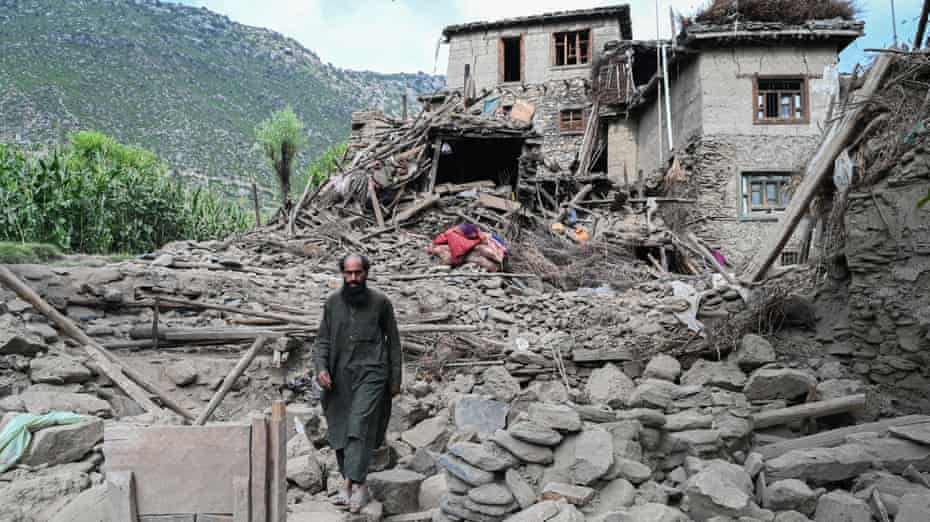Afghanistan is reeling from a devastating earthquake that has killed more than 1,400 people and injured thousands more, with the Taliban calling for urgent international assistance as rescue efforts struggle to reach remote areas.
The 6.0-magnitude quake struck on Sunday in the country’s eastern Kunar province, near the border with Pakistan, flattening villages built of mud and stone along steep valleys. Many victims remain trapped under rubble, but rescuers have been hampered by treacherous terrain, poor weather and damaged roads.
On Tuesday, a second tremor measuring 5.5 hit south-eastern Afghanistan at a similar shallow depth of six miles, prompting fears of further destruction. The health ministry said additional injuries had been reported, with the toll expected to rise.
Before the second quake struck, Taliban officials confirmed 1,411 deaths and more than 3,000 injured. Authorities warned that the final figures could be far higher as entire communities remain cut off.
Ghazi Abad, a village in Kunar’s Nurgal district, was reduced to rubble. “There is not a single standing room visible in this village,” said Abdullah, a resident. “The aftermath of the disaster suggests that life here was ended in mere seconds.” Nearby settlements suffered similar devastation.
Villagers, many grieving amid the ruins of their homes, have begun digging through debris by hand to recover survivors and bodies. In Kunar, the dead, including children, were wrapped in white shrouds and buried as helicopters ferried the injured to hospitals. Heavy rains have increased the risk of landslides, complicating relief operations.
Sharafat Zaman, a spokesman for the health ministry in Kabul, appealed for international aid. “We need it because here lots of people lost their lives and houses,” he said.”
The disaster comes as Afghanistan grapples with a severe economic crisis, compounded by the withdrawal of foreign aid since the Taliban takeover in 2021. Hardline restrictions on women’s education and employment have triggered a sharp reduction in international funding, leaving the country’s relief organisations under-resourced and ill-equipped.
Osama Malik, an international law expert, urged governments to allow frozen Afghan funds to be used for relief efforts. “The Pakistani government should also halt Afghan deportations at such a critical time when Afghanistan will be unable to manage an influx,” he said.
Britain has pledged emergency support, saying aid would be delivered through trusted partners rather than directly to the Taliban administration. The US state department offered condolences on Monday but did not confirm whether it would provide assistance.
Rescue efforts continued late into Tuesday, with military teams deployed and more than 40 flights evacuating the dead and injured. Yet for many in the worst-hit villages, survival remains precarious. “The losses are huge, people have no food and safe drinking water,” said one survivor. “We need ambulances, we need doctors, we need everything.”



